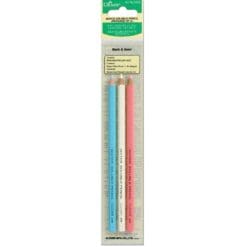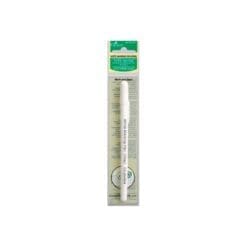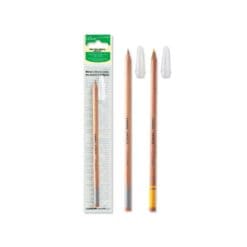Metric Pattern Cutting for Children’s Wear and Babywear
د.إ 352.65
In stock
First, the sections have been re-organised to reflect changes in producing and marketing children’s clothes. Today’s popularity of easy-fitting styles and knitted fabrics means that basic ‘flat’ pattern cutting is used to construct the majority of children’s wear and babywear and this type of cutting is therefore emphasised in this new edition. Shaped blocks and garments, cut to fit the body form, are still included, and are placed in chapters covering some school uniform garments or more expensive fashion or formal clothes. The book now clearly separates the sections useful to student beginners (Parts One, Two and Three), and also offers more advanced or specialist sections for students who wish to pursue a career in children’s wear or for designers working in the different manufacturing sectors of the trade.
The second change in this fourth edition is the introduction of colour coding to the sections; this makes it easier to identify specific processes in the book and enhances the illustrations.
Finally, the size charts have been revised to reflect the changes in body sizing. The clear division of the boys’ and girls’ measurements in the charts has been in response to the way clothes are marketed and to co-ordinate with European size charts. ‘Plus’ charts for heavier children have also been added.
First, the sections have been re-organised to reflect changes in producing and marketing children’s clothes. Today’s popularity of easy-fitting styles and knitted fabrics means that basic ‘flat’ pattern cutting is used to construct the majority of children’s wear and babywear and this type of cutting is therefore emphasised in this new edition. Shaped blocks and garments, cut to fit the body form, are still included, and are placed in chapters covering some school uniform garments or more expensive fashion or formal clothes. The book now clearly separates the sections useful to student beginners (Parts One, Two and Three), and also offers more advanced or specialist sections for students who wish to pursue a career in children’s wear or for designers working in the different manufacturing sectors of the trade.
The second change in this fourth edition is the introduction of colour coding to the sections; this makes it easier to identify specific processes in the book and enhances the illustrations.
Finally, the size charts have been revised to reflect the changes in body sizing. The clear division of the boys’ and girls’ measurements in the charts has been in response to the way clothes are marketed and to co-ordinate with European size charts. ‘Plus’ charts for heavier children have also been added.
| Weight | 0.7031 kg |
|---|
Only logged in customers who have purchased this product may leave a review.
Related products
Chalk & Fabric Markers
Chalk & Fabric Markers
Chalk & Fabric Markers
Chalk & Fabric Markers
Chalk & Fabric Markers
Chalk & Fabric Markers
Chalk & Fabric Markers
Chalk & Fabric Markers
















Reviews
There are no reviews yet.